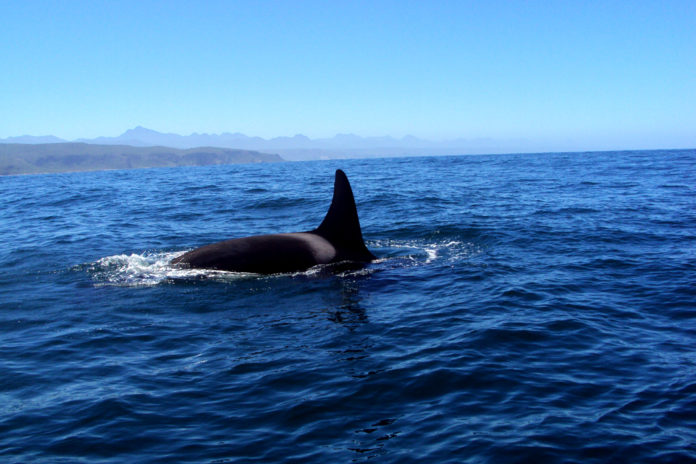
“In the end we will conserve only what we love; we will love only what we understand; and we will understand only what we are taught.” – Baba Dioum
The new Plett Ocean Festival (1 – 10 July 2022) is anchored by another first for Plettenberg Bay, a three-day marine science symposium which will take place at the iconic Beacon Isle Resort from 1 – 3 July 2022 and will be MC’d by the Black Mermaid Foundation’s Zandile Nhdlovu.
The landmark Beacon Island, with its near-panoramic ocean views and exquisite sea lounge perched over the rocks and waves of the bay, is the perfect location from which to launch a symposium and various conversations about marine science. The symposium brings together experts in their oceanic fields and storytellers for a series of sessions that ocean lovers can really immerse themselves in.
As Plett Tourism’s events manager Cindy Wilson-Trollip, who spearheaded the development of the festival and the symposium points out: “The depth of knowledge and extent of research in Plettenberg Bay and the Garden Route on oceanography, conservation and marine life is vast, and we want to share it with the world. The symposium is about a sustainable ocean economy – the ocean and our beaches are Plett’s most important tourist attraction and Plett Tourism is committed to continuing the work of keeping these attractions pristine and flourishing.”
An impressive lineup of both speakers and topics features experts on marine mammals, sea birds and sharks, the wonders of our estuary, and inspiring lessons from the ocean. The symposium will also take on tougher topics such as the sustainability of boat-based whale watching, the dangers facing our migrating whales, the challenges faced by recreational fishers and the importance of diverse representation in the ocean. It is a well-rounded programme including such crowd pleasers as great white sharks, bottlenose dolphins and the sounds of marine mammals while also seeking to ask difficult questions, stimulating conversation and immersing attendees in a world that desperately needs conservation. As Dr Syliva Earle, founder of global Hope Spots says: “No water, no life. No blue, no green.” Dr Earle visited Plett in 2014 with Mission Blue to launch the Plett Hope Spot.
As it should, the symposium will start with an apex predator – the orca or killer whale – with a session from Dr Danielle Conry, recently returned from studying orcas on South Africa’s Marion Island, From the Southern Ocean sunny South Africa: A story about killer whale research in South Africa and an overview of what is currently known about the local population of these enchanting marine mammals. Dr Chantel Elston follows with a curious look at what lies beneath the surface of the lagoon in her talk, What lives in the Keurbooms Estuary? Dr Elston’s postdoctoral research at the South African Institute for Aquatic Biodiversity (SAIAB) has brought her to the beautiful Garden Route where she is studying the stingrays of Plett’s very own Keurbooms estuary. She is followed by vet and marine mammal scientist, Dr Alejandra Vargas-Fonseca presenting on everybody’s favourite oceanic mammal, the Bottlenose dolphins on the Garden Route. Dr Elston then returns for an exciting session on becoming a citizen scientist, encouraging everyday ocean-lovers and conservationists to support research and help scientists by collecting data via the ELMO Africa app. Proceeds from this talk will go to Plett’s Orca Foundation. The first day closes with a presentation from Dr Anton Wolfaardt revisiting Marion Island to discuss Saving Marion Island’s Seabirds: The Mouse-Free Marion Project, which will be followed by a networking session at the Beacon Island’s exquisite Gazebo and an introduction to the Robberg Coastal Corridor Initiative by Kei Heyns.
The second day of the Marine Science Symposium begins with well-known whale warrior, Lloyd Edwards, of Raggy Charters, and his presentation on the Southern Hemisphere Whale Migration Route which pairs well with the following talk by Dr Minke Witteveen on Assessing the ecological and social sustainability of boat-based whale-watching in Plettenberg Bay, South Africa. Next up is Dr Matthew Zylstra from the new Kwendalo Institute in Plett, with his Encounters: an experience of the Keurbooms estuary and Chanel Hauvette on Marine life strandings in Plettenberg Bay and surrounds. The day ends with Lacey Williams’ White Sharks of Plettenberg Bay which will include footage from veteran shark-lover and NSRI member, Bruce Noble, and another networking session at the Gazebo with a short talk from Mike Kantey on the history of the Beacon Island Whaling Station.
Get ready for some serious vibrations and topical conversations on the final day of the Marine Science Symposium as Kuhle Hlati, of the Department of Environment, Forestry and Fisheries, and Alejandra Vargas-Fonseca present the Sounds of marine mammals in Plettenberg Bay. This is followed by Kyle Smith’s Challenges facing recreational fishing in the Garden Route – time for new initiatives and methods, a must for all recreational fishers, and a return to citizen science with Wilma Swanepoel’s Strandloper Project: Unlocking marine research through citizen science. Talking social and environmental points, MC Zandile Ndhlovu’s Why Diverse Representation in the Ocean is Most Important and Jessica Seath’s Ecological Engineering in the Knysna Estuary: modifying artificial shoreline structures to foster new marine habits are sure to attract attention. The sessions are closed off on an inspirational note with Susan Swain’s presentation on Biomimicry: Inspiration and lessons from our oceans and a taste of the Plett Winelands in the Gazebo.

